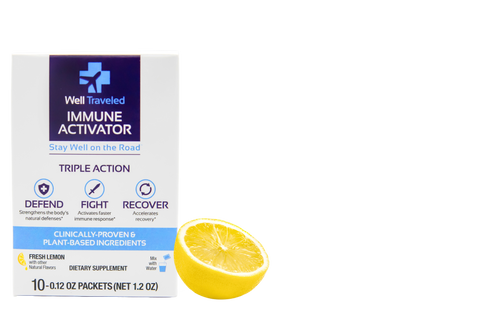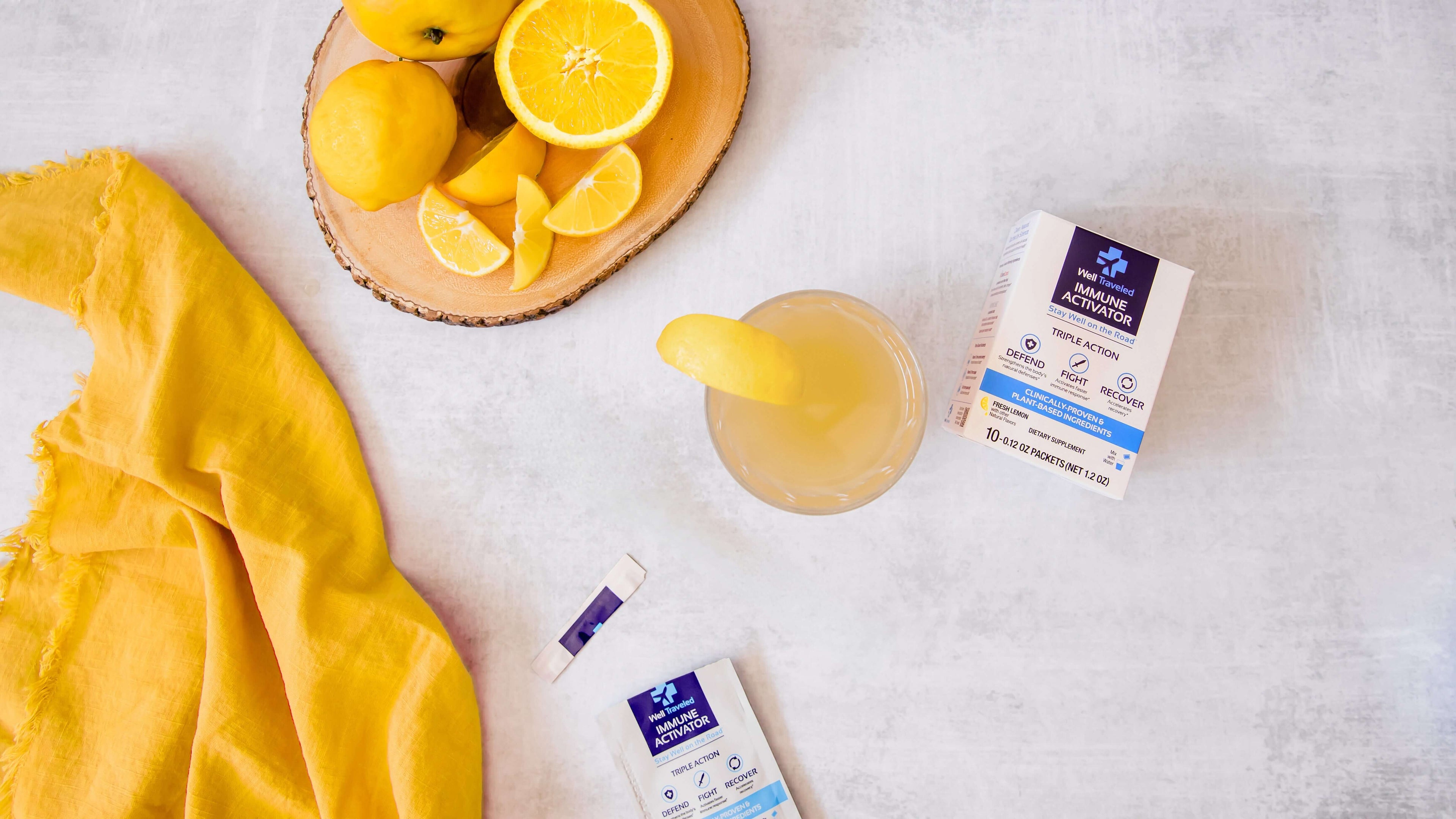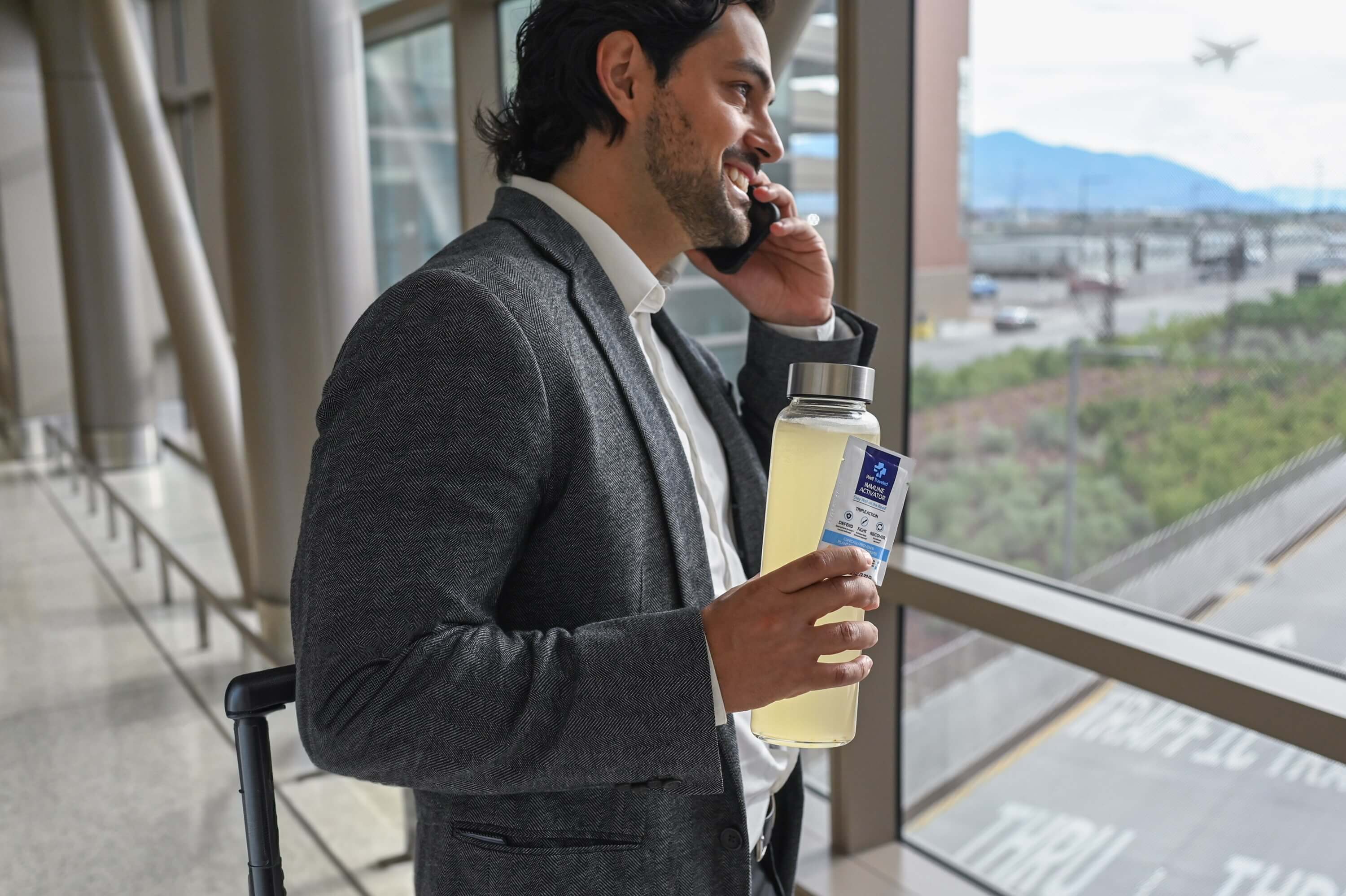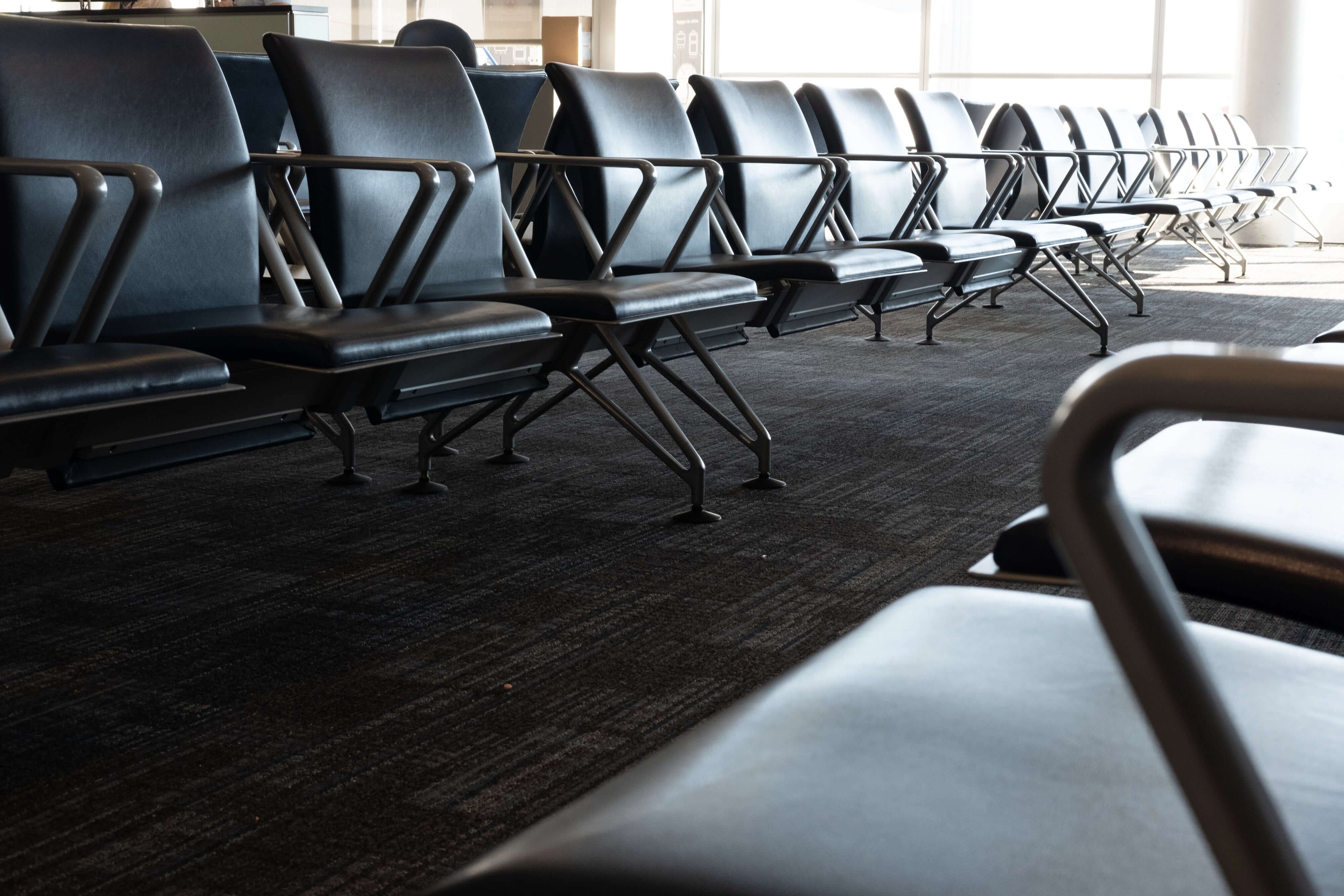Stop Settling for Sugary & Simple
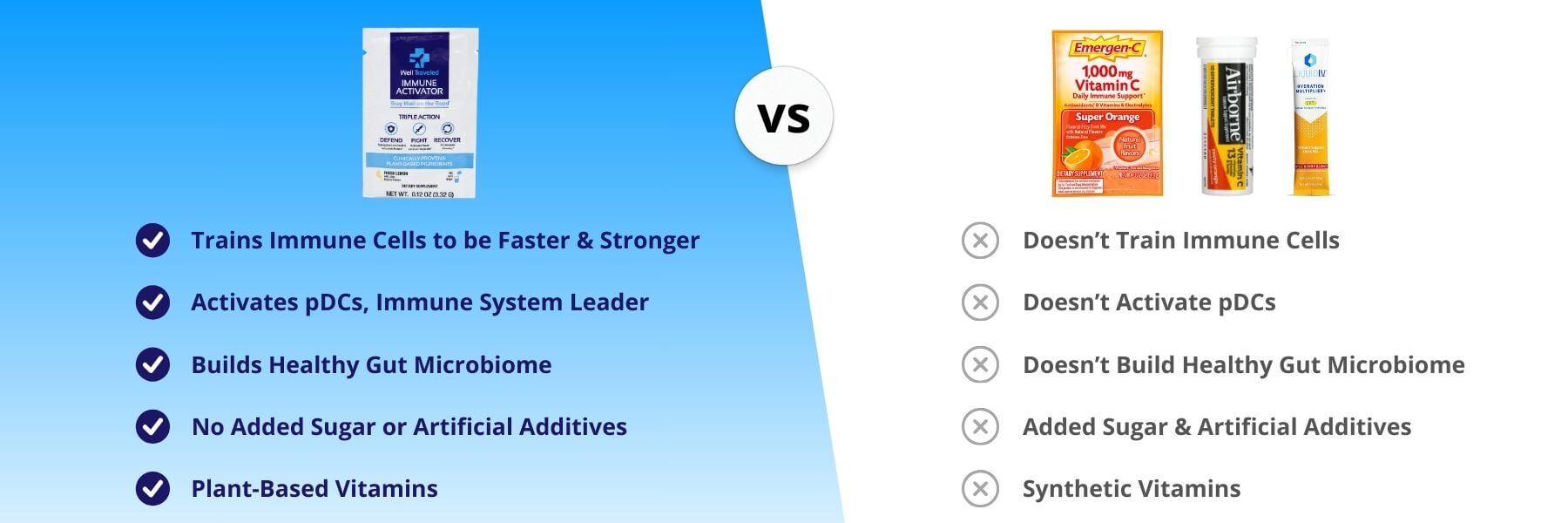

A Gamechanger in Immune Health
-
Clinically Proven
Prebiotics & postbiotics (BeniCaros®, IMMUSE™) backed by 35 clinical studies
-
Plant-Based Vitamins
Our vitamins come from real foods, not a lab.
-
No Added Sugar
We don't add sugar or artificial additives.
Innovative Blend of Ingredients
Frequently Asked Questions
What makes Well Traveled different?
Better Science: We use award-winning ingredients (BeniCaros® prebiotic, IMMUSE™ postbiotic) backed by 35 clinical studies that provide breakthrough results for immune and gut health. Read about our ingredients and science here.
Cleaner Ingredients: No added sugar. No artificial additives. Real vitamins from whole foods.
Who is it for? Only travelers?
Anyone, not just travelers, can benefit from the unique and powerful health benefits of Well Traveled.
Take Well Traveled to:
- Kickstart your day
- Enhance daily vitality
- Conquer stressful weeks
- Improve workout recovery
- Thrive while traveling
Why should I take it?
- To help avoid getting sick (preventative)*
- To recover faster when you're already sick (recovery)*
- To improve your overall immune & gut health (general wellness)*
How do I take it?
One packet a day.
Mix with 8-16 oz of water and stir well.
Regular use (daily or 3-4x per week) will yield the best results for immune support and gut health.
If traveling: take 1 day before travel, every day during your trip, and 1 day after returning home.
We recommend taking in the morning for all-day support.
What benefits can I expect?
Regular use will result in a stronger immune system and healthier gut.*
Customers report:
- Getting sick less often
- Recovering faster when already sick
- Feeling more energized
- Feeling more alert and focused
- Less digestive issues
- Better overall health
Visit our FAQs page for answers to more commonly-asked questions.
Triple Action
-
DEFEND
Strengthens the body's natural defenses*
-
FIGHT
Activates faster immune response*
-
RECOVER
Accelerates recovery*
Let customers speak for us
Negative Effects of Travel
Billions of Germs
You encounter billions (!) of germs when you travel.
Every surface from tray tables to taxi seats to hotel doors is teeming with germs.
Infectious airborne particles can easily spread from person to person in close quarters. Planes pose particularly unique risks.
Here are some common bacteria and viruses that show up in surface and air samples at airports and on planes:
pseudomonas, stenotrophomonas, staphylococcus, E. coli, klebsiella, acinetobachter, propionibacteriaceae, and streptococcaceae, rhinovirus, and influenza virus.
Stress
Travel can be stressful, especially business travel. Stress weakens immune function.
Dehydration
Dehydration is common when traveling, especially when flying.
At just 10-20% humidity, an airplane cabin is drier than the Sahara desert! For every hour of flying, you lose 8 ounces of water. This leaves most people incredibly dehydrated.
At low humidity, skin and mucous membranes dry out, and flu viruses are both easier to catch and last longer.
Most people also forget to drink enough water when they're away from home.
Fatigue
If you've ever felt fatigued while traveling, there are many reasons for that.
While flying, you take in less oxygen due to the cabin pressure.
When traveling in vehicles, the constant sways, jerks, and jumps are taxing on the brain and muscles.
When traveling in general, you're also on higher alert of your surroundings which adds to mental exhaustion.
Digestive Issues
The fluctuating pressure, oxygen, and temperature in planes causes your stomach and intestines to expand.
Your body also has to work harder to circulate blood to the limbs in the face of high altitude and dry air, leading to digestive issues such as gas and bloating.
Poor Circulation
Sitting for extended periods of time in planes and cars slows blood flow through the arms and legs, increasing the risk of serious issues like blood clots.
Jet Lag
If you cross time zones, your circadian rhythm is disrupted, impacting your sleep, energy levels, focus, and mood.
Radiation
Air travel exposes you to radiation because at high altitude, the air is thinner. Thinner air means fewer molecules to deflect incoming cosmic rays (radiation from outer space).
While the radiation dose rate at commercial airline flight altitude is ~0.003 mSV per hour (a very low dose), for regular travelers who fly tens of thousands of miles every year, that cumulative radiation exposure increases the risk of cancer later in life.
Disrupted Routines
Healthy diet, exercise, and sleep routines you've developed are harder to maintain when away from home.



